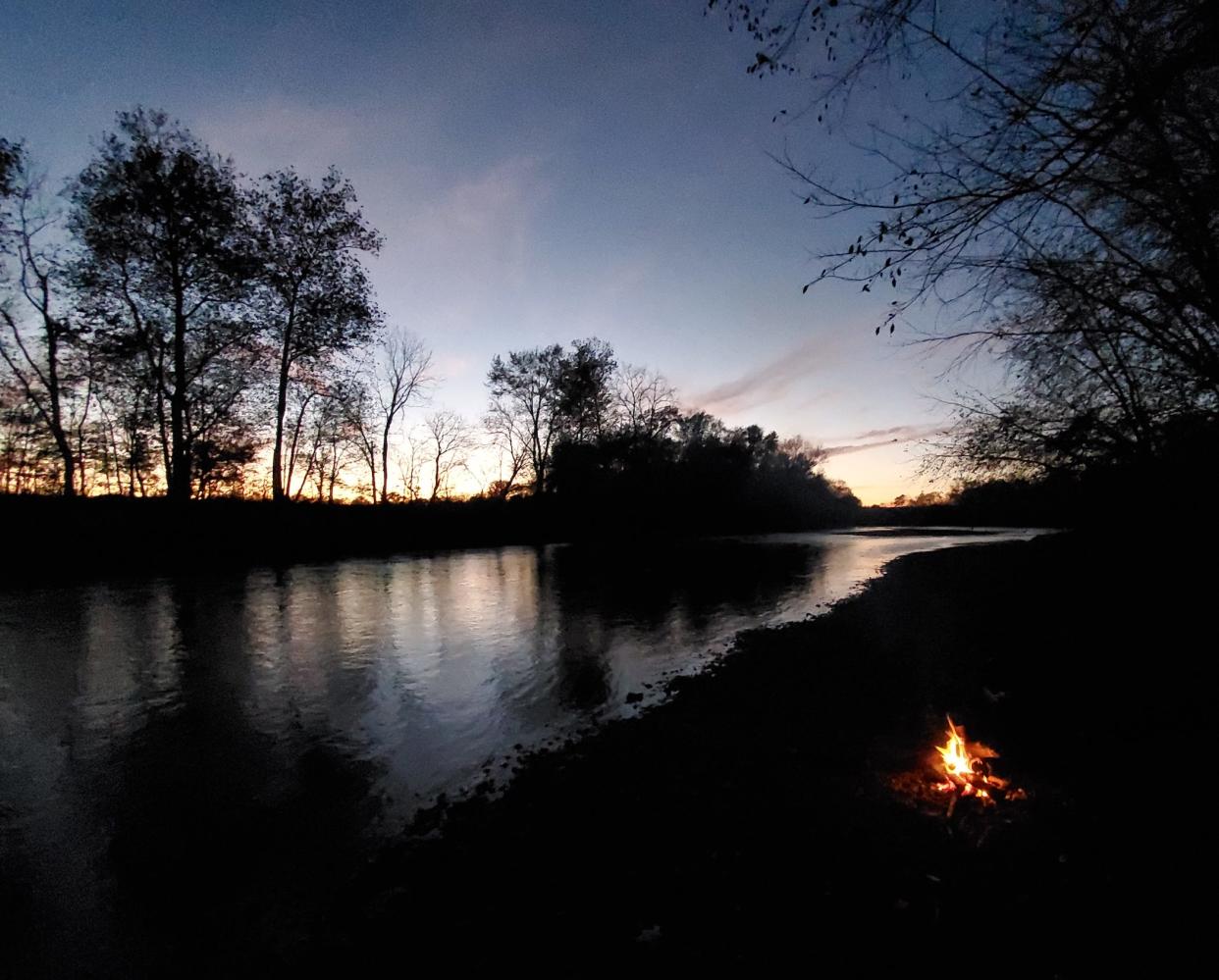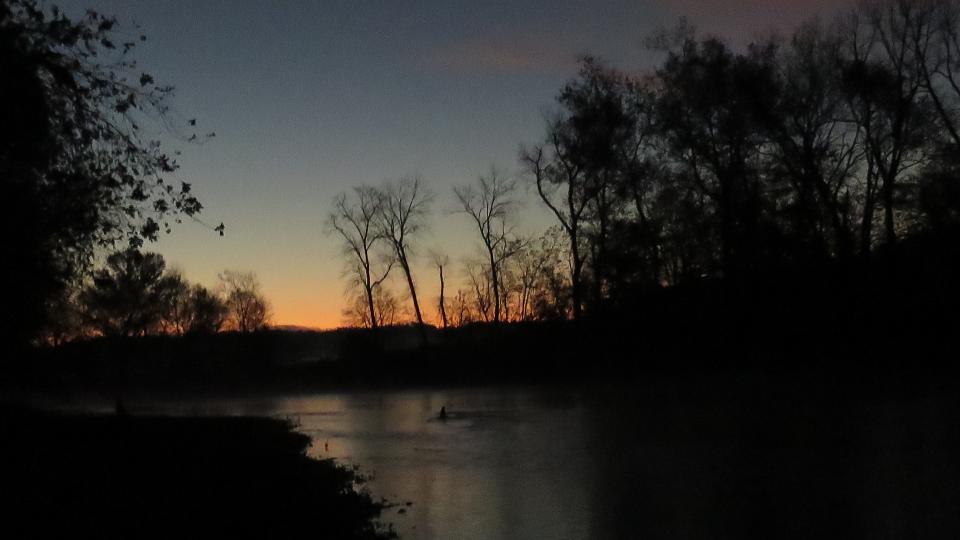Irv Oslin: Our just desserts — a fitting end to another river story

The river holds many memories. And some it mercifully lets go.
So it was on the final leg of our three-day excursion on the Walhonding and Muskingum rivers.
Previous column: History is nothing more than a futile exercise in naming rights
Curtis Casto and I had planned to camp near Wills Creek on the Muskingum River. Instead, we stopped short of that.

It was a spot where I’d camped a few dozen times before. Most of my experiences there have been pleasant — camping alone or with friends. It’s a place where the glow of sunsets and sunrises trip lightly across the surface of the river. Now that the Conesville Power Plant has closed, you no longer hear the din of the turbines. Instead, as the soft red hues of sunset faded into bronze then into darkness, we heard the soulful yipping and howling of coyotes.
They weren’t far away.
That might have made some people nervous. Not us. It was a good omen; it meant no one else was around.

Not all of my experiences there have been pleasant. Which is why I prefer to canoe and camp alone — or choose my company carefully. On one occasion, a fellow camper defaced several trees with a hatchet. Another time, a guy who was with our group proudly announced his intention to burn every stick of firewood he could find. It was the last time I canoed with either of them.
It’s hard to let go of things like that. Perhaps that’s why I mentioned them to Curtis — just a way of unburdening myself.
On the last day of our trip, I shared stories of the stretch of river from the Wills Creek confluence to Dresden. Our trip gave rise to a few new stories, which we’ll embellish over time with new details. (That’s the great thing about being old; you forget some of the details, so you fill in the blanks with new ones.)
Dresden Wildlife Habitat Site stop
We pulled off the river to stretch our legs at the Dresden Wildlife Habitat Site. About 14 years ago, the Shelly & Sands company converted 96 acres of former gravel pits into a nature preserve.
Prior to that, my friends and I camped there on our river trips. At the time, it was a disused stone quarry — where interconnected gravel pits had filled up with spring water, which flowed through a small outlet into the Muskingum River. Until heavy rains caused erosion that sealed off the outlet, you could paddle up in there, working your way from pond to pond.
It was a paradise, teeming with wildlife and lush native vegetation. No one ever came around and we made sure to leave no trace.
After the old quarry became inaccessible by canoe, we stopped camping there. These days, I make it a point to stop and have a look around.
Osprey nesting platforms
Curtis and I beached our boats and climbed an embankment to a mowed path. I was delighted to see osprey nesting platforms out on one of the ponds. They weren’t there on my last visit. Piles of sticks atop the platforms indicated that they had been occupied.
We were about to return to our boats when a woman came along, hiking on the path. It was the first time I’d ever encountered another person there. She stopped and we talked about the preserve. She told us the osprey nests had been occupied last summer and that two broods of chicks fledged.

How great, I thought, that this place had made a fortune for a few and a living for many. For a time it served as a source of pleasant memories for a few of us adventurous paddlers. And now its magic can be enjoyed by the likes of this woman and the flora and fauna that abide there.
Curtis and I continued our journey, enjoying the last few miles of the Muskingum River before our takeout in Dresden.
Along the way, I spotted an apple tree overhanging the west bank. Big red apples dangling from its branches called out to me. I canoed over and used my paddle to flick a half-dozen apples into the river. Curtis retrieved them. They were firm and flawless.
The apples turned out to be extraordinarily tasty — sweet and somewhat tart. Like the memories of our river adventures.
This article originally appeared on Ashland Times Gazette: Our just desserts — a fitting end to another river story

